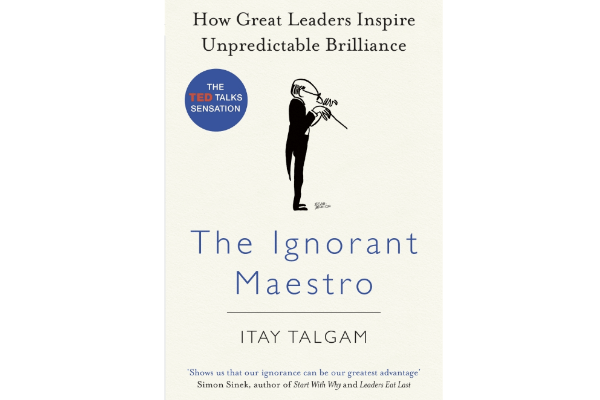“A leader. . .is like a shepherd. He stays behind the flock, letting the most nimble go out ahead, whereupon the others follow, not realizing that all along they are being directed from behind.” — Nelson Mandela, former President of South Africa
What makes someone a great leader? Is it charisma, authority, experience — or something deeper?
Leadership today is less about commanding and more about connecting. It’s not just about getting the work done, but about inspiring people, navigating change, and enabling team success. The qualities that define great leadership have evolved over time — and continue to evolve in the face of digital transformation, hybrid work, and rising expectations of employees.
In this post, we explore 10 essential leadership qualities that are not just relevant but critical in today’s dynamic corporate landscape. These are traits we often build into our leadership training programs, especially when working with new managers, senior executives, or high-potential talent.
Whether you’re in HR, L&D, or a leader yourself, these qualities offer a lens through which you can evaluate, support, and develop your organization’s leadership capability.
1. Self-Awareness
Table of Contents
Leadership begins with self. Self-awareness means being conscious of one’s strengths, weaknesses, values, and impact on others.
In our leadership workshops, we’ve seen how reflection-based activities and tools like 360-degree feedback or behavioral assessments (e.g., Emergenetics, DISC) help leaders recognize their blind spots and unlock growth.
Takeaway: Without self-awareness, other leadership qualities are built on shaky ground.
2. Empathy
Empathy isn’t just about being “nice” — it’s about understanding what drives others, recognizing emotions, and creating psychological safety.
We have noticed that empathetic leaders build stronger teams, lower attrition, and higher levels of employee engagement. In fact, empathy is one of the pillars of modern leadership development programs, especially in hybrid or remote environments.
Tip: Empathy can be cultivated through emotional intelligence training and consistent coaching.
3. Communication
“Developing excellent communication skills is absolutely essential to effective leadership. The leader must be able to share knowledge and ideas to transmit a sense of urgency and enthusiasm to others. If a leader can’t get a message across clearly and motivate others to act on it, then having a message doesn’t even matter.”— Gilbert Amelio, President and CEO of National Semiconductor Corp
Effective leaders know when to talk and, more importantly, when to listen. Good communication allows you to share information, while also effectively setting expectations. While, active listening shows that you care by making space for your employees’ opinions, ideas, and feed-forward. The way to go about it is to engage people in conversation, stay attentive, pose questions, invite them to elaborate, and take notes whenever possible.
In addition, you must learn to efficiently handle the rapid information flow within, and from outside the organisation. Be it among customers, partners, employees, or the wide range of external vendors and remote based teams. The quality of your communication directly affects the outcome of your business strategy.
A good leader with communication skills can shift mindsets, align teams, and drive change. Whether it’s active listening, storytelling, or clarity in tough conversations—communication is a superpower in leadership.
In our experience, the best corporate trainers often equip leaders with tools for feedback, influencing without authority, and presence in virtual meetings.
Tip: Focus on agile meeting facilitation techniques and leadership storytelling workshops to build this competency.
4. Adaptability
“Humility is not about having a low self-image or poor self-esteem. Humility is about self-awareness.” – Erwin McManus
Good leaders are always aware of their emotional state and use this awareness as a tool to to inspire, motivate, and challenge followers. The better a leader is able to recognise his own strengths and weaknesses, the more effective he gets. A sense of humility is essential to leadership because it authenticates a person’s humanity.
Recognising the areas you excel at, as well as the areas you struggle in, is vital to self-awareness and practising humility. Understanding your own identity helps you shape your interactions with others. As a leader, you need to be careful not to build a wall around that prevents people from reaching out, when and if they need to.
5. Gratitude
The past few years have shown us that leaders who can’t adapt quickly become bottlenecks.
Adaptability is about being open to change, resilient in the face of ambiguity, and responsive to emerging needs. Many of our clients now prioritize growth mindset training for leaders to build this trait across their mid-management and leadership pipeline.
Tip: Create safe-to-fail spaces for leaders to experiment and learn.
6. Vision

Every leader needs a north star. Vision provides direction, motivation, and meaning.
From our facilitation of strategic planning retreats, we’ve seen that when leaders co-create a vision with their teams, the commitment to execution is stronger.
Tip: Vision-building should not be a solo activity. Use business strategy facilitation techniques to bring teams into the fold.
7. Learning agility/Strategic thinking:
“Learning agility is the willingness and ability to learn, de-learn, and relearn. Limitations on learning are barriers invented by humans.” – Pearl Zhu
Learning agility is the ability of a leader to know what best to do in unforeseen or unexpected circumstances. Having steady nerves in a crisis cannot be underestimated, but can be learned. In a rapidly changing world, where businesses and even entire industries are routinely disrupted and upended, learning-agile high potentials with resilience are the need of the hour. Leaders should be quick to face these challenges, because adaptiveness and creative problem-solving are critical leadership skills they need for the future.
8. Empathy

“Leadership is about empathy. It is about having the ability to relate to and connect with people for the purpose of inspiring and empowering their lives.” – Oprah Winfrey
Being empathetic allows leaders to build and develop relationships with those they lead and help struggling employees improve and excel. Effective empathy and inclusion can increase the willingness of the employees to invest more effort and energy in the workplace by bringing about a sense of belonging and loyalty.
9. Courage
“Courage is what it takes to stand up and speak; courage is also what it takes to sit down and listen.”-Winston Churchill
A courageous leader guides and steers his employees without suppressing creativity. They lead by example, and they stand at the helm of the company, giving everyone behind them confidence to do their jobs to the best of their ability. Rather than avoiding problems or allowing conflicts to escalate, courage enables leaders to step up and move things in the right direction.
10. Respect

“Respect is the key determinant of high-performance leadership. How much people respect you determines how well they perform. – Brian Tracy
Respect and leadership go hand in hand. Recognizing the inherent worth and value of the other person, and honoring that inherent worthiness in our words, actions and behaviors is one of the most important things that a leader can do. Treating people with respect on a daily basis will ease tensions and conflict, create trust, and improve effectiveness.
“Don’t tell people how to do things, tell them what to do and let them surprise you with their results.“-George S Patton.
Leaders often struggle with delegating effectively. However, delegation remains an important leadership skill to master. The aim of delegation, contrary to what you might think isn’t just to free yourself up. But, rather it also allows space for those in your care to grow. It also facilitates teamwork, provide autonomy, and leads to better decision-making. It remains imperative toward establishing trust with your employees.
11. Accountability
Accountability is about owning outcomes, both good and bad. It sets the tone for a performance culture.
We have noticed that when leaders are clear about expectations, role modeling accountability, and recognizing efforts consistently, teams become more proactive and self-managed.
12. Decision-Making
Great leaders don’t wait for perfect information — they make timely, informed decisions and iterate along the way.
Through simulations, role plays, and real-time problem-solving, we help leaders build critical thinking and decision-making skills. The ability to weigh trade-offs, involve the right stakeholders, and take ownership of the outcome is a hallmark of strategic leadership.
Tool to try: Decision matrix analysis during team offsites.
13. Inclusiveness
Leadership in today’s world requires you to be inclusive—not just in terms of diversity, but in ensuring everyone feels heard, valued, and respected.
In our inclusive leadership workshops, we’ve seen leaders move from passive support to active allyship. And the impact on team morale and performance? Tangible.
Pro tip: Try exercises that reveal unconscious bias and expand perspective.
14. Coaching Mindset
Modern leaders are expected to coach, not command. That means asking questions, enabling reflection, and helping others grow.
We run first-time manager training programs with a strong emphasis on coaching mindset because that’s where many new leaders struggle the most—moving from doing to enabling.
Coaching tip: Begin 1:1s with “What would success look like for you this week?” rather than jumping into status updates.
15. Integrity
Integrity builds trust. Without it, influence is fragile and performance is inconsistent.
We’ve seen that integrity isn’t just about honesty; it’s about consistency, transparency, and courage to do the right thing—especially under pressure.
Tip for L&D teams: Use storytelling and case-based learning to explore ethical dilemmas in leadership contexts.
Beyond the List: Leadership as a Journey, Not a Checklist
In our team’s experience working with organizations across sectors, we’ve learned that leadership development is not about ticking off traits. It’s about creating environments where leaders can continuously learn, fail, reflect, and grow.
Leadership programs work best when they are:
- Contextualized to the organization’s culture
- Rooted in lived challenges
- Experiential in delivery
- Linked to real-world application
- Co-created with business and L&D
Final Takeaway
The leadership landscape is evolving. As L&D professionals, HR leaders, and business managers, our role is to nurture these qualities not just in senior executives, but across levels.
Whether through structured leadership development journeys, experiential learning programs, or even informal mentorship—we must shift the paradigm from “leaders at the top” to “leaders everywhere.”
And as we like to say in our team: Leadership is not a designation. It’s a decision.
If you’re reflecting on how to equip your leaders with these skills, we’d love to share what we’ve seen work in our work with clients.











